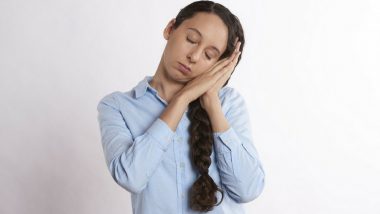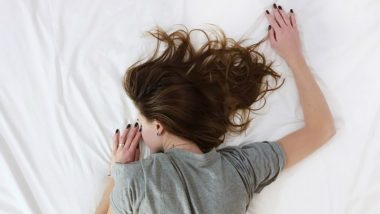Washington, March 6: Turns out, preschoolers exposed to nighttime light tend to sleep lesser. According to a University of Colorado at Boulder study, exposing preschoolers to an hour of bright light before bedtime almost completely shuts down their production of the sleep-promoting hormone melatonin and keeps it suppressed for at least 50 minutes after lights out.
The study is the first to assess the hormonal impact nighttime light exposure can have on young children. The study comes at a time when the use of electronics is rapidly expanding among this age group and adds to a growing body of evidence suggesting that-because of structural differences in their eyes-children may be more vulnerable to the impact light has on sleep and the body clock.
"Although the effects of light are well studied in adults, virtually nothing is known about how evening light exposure affects the physiology, health, and development of preschool-aged children," said lead author Lameese Akacem. "In this study, we found that these kids were extremely sensitive to light."
For the study, the researchers enrolled 10 healthy children aged between 3 and 5 years in a seven-day protocol. Melatonin levels were 88 percent lower after bright light exposure. Levels remained suppressed at least 50 minutes after the light was shut off.
Direct comparisons between this study and studies in adults must be made with caution because of different research protocols, the researchers stressed. However, they noted that in one study, a one-hour light stimulus of 10,000 lux (10 times that of the current study) suppressed melatonin by only 39 percent in adults. "Light is our brain clock's primary timekeeper", explained senior author Monique LeBourgeois. "We know younger individuals have larger pupils, and their lenses are more transparent. This heightened sensitivity to light may make them even more susceptible to dysregulation of sleep and the circadian clock", continued LeBourgeois.
She explained that when the light hits the retina in the eye in the evening, it produces a cascade of signals to the circadian system to suppress melatonin and push back the body's entrance into its "biological night". For preschoolers, this may not only lead to trouble falling asleep one night, but to chronic problems feeling sleepy at bedtime.
The study sample size was small and it used only single intensity of light, slee1,000 lux, which is far greater than the intensity of a typical handheld electronic device, she noted. "The preschool years are a very sensitive time of development during which use of digital media is growing more and more pervasive," Le Bourgeois said. Use of electronic media among young children has tripled since 2011. Le Bourgeois continued, "We hope this research can help parents and clinicians make informed decisions on children's light exposure". The study is published in the journal Physiological Reports.













 Quickly
Quickly




















